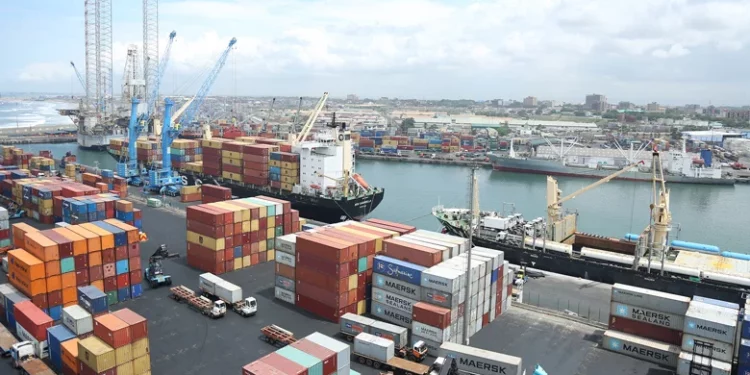China-Ghana Trade Value Surges to Circa $6 Billion in H1 2024, Marking 13.3% Growth
China-Ghana trade continues to deepen, as bilateral trade volumes reached nearly $6 billion in the first half of 2024, an increase of 13.3% over the previous year, highlighting the strengthening ties between the two nations.
In 2023, trade volumes exceeded $11 billion, a rise of 10.4% year-on-year, according to Tong Defa, China’s newly appointed Ambassador to Ghana.
Speaking at a reception in Accra celebrating the 75th anniversary of the founding of the People’s Republic of China, Ambassador Defa emphasized China’s role as Ghana’s largest trading partner and a leading source of foreign investment.
He noted that China’s investments in the West African nation span key sectors including energy, manufacturing, and infrastructure.
A particular highlight is the recent Chinese investment of approximately $2 billion in the Sentuo Oil Refinery, representing one of the most significant injections of foreign capital into Ghana’s economy in recent decades. This, according to Defa, underscores China’s commitment to Ghana’s energy sector and its broader economic development.
“Ghana stands as a gateway to the African continent,” Ambassador Defa remarked, emphasizing the country’s advantageous position as host of the African Continental Free Trade Area Secretariat, its rich natural resources, and political stability.
These factors, he argued, make Ghana an attractive destination for Chinese investments, which already include major projects such as the Sunon Asogli Power Limited, African World Airlines, and several steel, ceramic, and cement industries.
These investments have bolstered local industrialization and created thousands of jobs for Ghanaians, further solidifying China’s economic footprint in the country.
China’s strategic investment in Ghana and across Africa reflects Beijing’s broader push to enhance its influence on the continent, particularly through its Belt and Road Initiative, which focuses on infrastructure and economic connectivity, and the Global Development Initiative aimed at addressing challenges faced by developing economies.
These initiatives, Ambassador Defa noted, represent China’s vision for inclusive modernization that promotes sustainable growth and stability, a point that was underscored by Ghana’s commitment to the one-China principle at the recent Beijing Summit.
On a broader scale, China’s economic involvement in Africa has surged, with investments increasing from less than $500 million in 2000 to over $40 billion by 2024.
Such financial commitments have strengthened China’s position as a key player in Africa’s development, and in Ghana’s case, Beijing’s role as co-chair of the Official Creditors Committee proved pivotal during Ghana’s recent negotiations with the International Monetary Fund (IMF).
Ambassador Defa noted that China was instrumental in helping secure $1.5 billion in funding to assist Ghana in its economic recovery efforts, underlining China’s importance as a development partner.
The reception in Accra also marked the official welcome of Ambassador Defa, whose tenure comes at a time of growing optimism around Ghana-China relations.
Ghana’s National Security Minister, Albert Kan Dapaah, expressed confidence in the partnership and noted that President Xi Jinping’s Ten-Point Partnership Action Plan, focused on joint modernization efforts, aligns well with Ghana’s own vision for economic development.
As the ties between Ghana and China deepen, both nations appear set to build on their shared interests, with the continued flow of trade and investment underpinning an increasingly strategic relationship aimed at fostering mutual growth.








